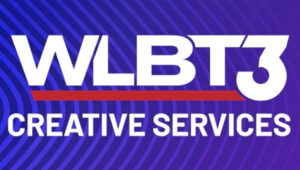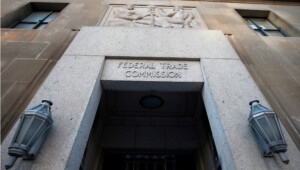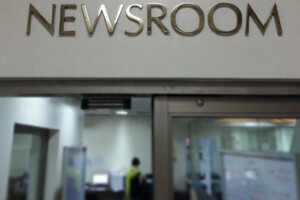Stations that auctioned their spectrum still hold their broadcast licenses so they may continue broadcasting — with full must-carry rights — by leasing a channel from another station. And stations that did not auction their spectrum can make money by leasing channels.
American Spirit Media says its Richmond, Va., CW affiliate WUPV will exchange its ch. 47 “for a lower channel position.” It did not say how much it is realizing from the auction.
WBIN Sells For $68M In Spectrum Auction
The Boston independent will go dark with the owner, Binnie Media, using the $68 million from the auction, plus another $10 million-$30 million from the sale of its license to a “major television group” to expand its radio group and NH1.com.
Vermont PBS Gains $56M From Auction
Vermont PBS will receive $56 million from the FCC spectrum auction after selling one of its four broadcast licenses. The sale of WVTA Burlington will not affect viewers, according to the station, which will re-engineer its network and upgrade signals to fill the gap in coverage. The station said it plans to invest the proceeds in educational and cultural programming. The sale brings the total auction money received that’s been reported so far to $1.64 billion out of a $10 billion total.
Howard University Withdraws From Auction
Howard University said Thursday that it’s withdrawing from the FCC’s spectrum auction. The school was considering selling the license to its public television station, WHUT, which is the only black-owned public media station in the United States. But many within Howard objected to the sale.
WUAB To Channel-Share With WOIO
If you’ve heard the rumor that MNT affiliate WUAB Cleveland will be going off the air, relax. It isn’t gong anywhere. Its owner, Raycom Media, which also owns the market’s CBS affiliate WOIO, has sold the WUAB ch. 43 frequency as part of the FCC’s spectrum auction and will be airing WUAB on WOIO’s ch 19, with no disruption in signal, according to the duopoly’s GM Erik Schrader.
It’s the latest broadcaster to make public its take from the sale of spectrum to wireless providers. This sale brings the total money received that’s been reported so far to $1.6 billion out of a $10 billion total.
The FCC’s auction of broadcasters’ spectrum to wireless carriers may not have been necessary, and it’s fallen far short of expectations, according to Gordon Smith, head of the National Association of Broadcasters. “There was an earlier auction that got $40 billion and they got half the spectrum that this one held out,” Smith said, referring to an auction that ended in January 2015 and raised $44.9 billion. “For twice the spectrum, they got half the money and broadcasters got a quarter of what they were led to believe was part of this extravaganza. It was no extravaganza.”
“it just didn’t make sense for us to participate because we make so much more money by broadcasting in the highest standards possible,” COO Joe Ianniello tells securities analysts and investors.
The tell-all notice on who got what in the reverse auction and who’s going where in the repack will be issued shortly following the end of the assignment auction, now set for March 30.
The independent on ch. 48 is owned by the French family. At $212 million, it could be the biggest payout of the FCC’s incentive auction.
Noncom WITF Getting $25M From Auction
WITF Harrisburg, Pa., will use $25 million in spectrum auction proceeds to bankroll three new initiatives, including a possible statewide news organization. WITF’s proceeds came from its agreement to operate under a channel-sharing arrangement, said President Kathleen Pavelko.
Of that total, broadcasters get about $10 billion. Next comes the assignment phase, in which winning forward auction bidders — who up to now have bid for generic license blocks — will have the opportunity to bid for frequency-specific licenses.
The company said none of the spectrum it put up for sale “was selected during the auction process because the prices available in the auction fell below the value we ascribed to it.”
Come On, Tell Us What You Got In The Auction
So far, we have been able to account for only about $1 billion of the $10 billion that the FCC pledged to broadcasters in the reverse auction. Fox, Sinclair, Tribune, Scripps and Gray have outed themselves. How about that rest of you? I’m looking at you, Brandon Burgess.
WQED Reaps $9.9M In Spectrum Auction
The Pittsburgh public TV outlet will receive $9.9 million from the sale of its spectrum, enough to completely retire its long-term debt with a few million to spare. In exchange for the payout, WQED will move to a lower broadcast frequency, likely in two to three years.
Broadcasters are now reviewing so-called confidential letters from FCC telling them if they have to move to new channels in the post-auction repack of the TV band, Those that do have to relocate are being given new channel assignments and technical parameters for them.
WUSF Spectrum Brings School $18.7 Million
The University of South Florida has sold WUSF Tampa in the FCC’s incentive auction. The public broadcasting station brought $18,754,503. WUSF will go off the air later will go off the air at a date still to be decided.
The news follows similar announcements from Tribune, Fox Stations and Gray.
Mich. University Sells WCMZ In Auction
Central Michigan University officials have announced they will sell their Flint public broadcasting station for $14 million. CMU purchased the station for $1 million in 2009. The station will continue to air for three months following the close of the auction before going dark, GM Ken Kolbe said.
It joins Gray Television and Fox Television Stations in announcing total money for its spectrum sales, but does not identify the stations involved.
The company said the spectrum sale “is not expected to lead to any material change in the operations or results for Fox Television Stations or for any of the affected television markets.” Wells Fargo’s Marci Ryvicker says the take is “a far cry” from the $2 billion that she and others once thought Fox would get from the auction.
You Made A Good Auction Bid, Now What?
Now that television stations can openly discuss the results of their participation in the Incentive Auction, it is an appropriate time for all television stations to assess their market position and think about what comes next. We will discuss how stations with various auction outcomes should approach their post-auction transaction. Today, we begin with stations that submitted a successful bid to relinquish their spectrum.
It says the sales “will not lead to job losses and otherwise are not expected to produce any material change in operations or results for Gray or for any individual market in which we operate.”
“Broadcasters are free to negotiate assignments or transfers of broadcast licenses or other transactions involving a transfer of control of a licensee that has been involved in the reverse auction,” the agency says.
 The FCC last week released two public notices, which together detail schedules and procedures to follow to relocate what is likely to be more than 1,200 TV stations to new channel assignments. While receiving high marks for its effort from broadcasters and consultants, many concerns remain. Topping the list of concerns: When to open CP windows; bad assumptions about the work that’s already been done and the effect of delays resulting from weather and zoning; the rippling impact of a delay in one phase on others; and the continued promise of going dark for stations failing to complete the relocation on time.
The FCC last week released two public notices, which together detail schedules and procedures to follow to relocate what is likely to be more than 1,200 TV stations to new channel assignments. While receiving high marks for its effort from broadcasters and consultants, many concerns remain. Topping the list of concerns: When to open CP windows; bad assumptions about the work that’s already been done and the effect of delays resulting from weather and zoning; the rippling impact of a delay in one phase on others; and the continued promise of going dark for stations failing to complete the relocation on time.
The FCC’s recent public notices provided transitioning stations with some much-needed clarity regarding the post-auction process. Here’s an overview of what’s cleared up and what’s not.
The Washington law firm filed a letter with the FCC today encouraging it to issue a formal declaration that, with the incentive auction’s final stage rule satisfied, no communications by broadcasters about the reverse auction can violate the commission’s prohibition on certain auction-related communications.
The FCC says it will manage the migration of hundreds of stations to new channels over 39 months by grouping the stations into 10 groups, each with its own deadline. But it offers no immediate relief on the so-called quiet period.
The FCC plans to reveal which broadcasters sold stations in the incentive auction and how much they got paid, but not until the forward auction and a subsequent assignment auction close, auction watchers say. That will take at least six weeks from today.
The spectrum sales advocate Preston Padden says since the bidding is finished, the anti-collusion requirements are no longer necessary.
Wheeler’s Auction: Promises Undelivered

 The FCC chairman, who will be gone by tomorrow, praised the incentive spectrum auction, but cautioned that “there is still a long road ahead,” meaning the necessary repack. “This will be an extremely important task for my successor and the new commission,” he said.
The FCC chairman, who will be gone by tomorrow, praised the incentive spectrum auction, but cautioned that “there is still a long road ahead,” meaning the necessary repack. “This will be an extremely important task for my successor and the new commission,” he said.
The FCC said that with the results of today’s rounds of the forward auction, the bidding has satisfied the requirements of the incentive auction’s Final Stage Rule, meaning that the auction will successfully conclude in Stage 4. Outgoing FCC Chairman Tom Wheeler said: “The auction will provide $10.05 billion to broadcast television licensees who participated and billions towards deficit reduction.”
 Almost every venue, studio and mobile broadcast crew that uses wireless microphones will need to reconfigure their systems by 2020 to comply with new federal regulations. Since the definition of wireless microphones includes in-ear monitors, intercom systems, and interruptible fold back (IFB) systems, more devices will be impacted than most people realize. Pending the outcome of the auction, here’s what wireless mic operators should expect.
Almost every venue, studio and mobile broadcast crew that uses wireless microphones will need to reconfigure their systems by 2020 to comply with new federal regulations. Since the definition of wireless microphones includes in-ear monitors, intercom systems, and interruptible fold back (IFB) systems, more devices will be impacted than most people realize. Pending the outcome of the auction, here’s what wireless mic operators should expect.
If you’re the owner of a full-power or Class A broadcast television station or are a multichannel video program distributor, and anticipate receiving a winning bid or seeking reimbursement funds from the FCC post-incentive auction, how will you get your money? The FCC has created an online tutorial to explain how this will work.
Jessell Alert: Spectrum Auction Terribly Sick

Bidding begins at 10 a.m. next Tuesday on 84 MHz of television spectrum with the goal of raising $40.3 billion from wireless interests.









































